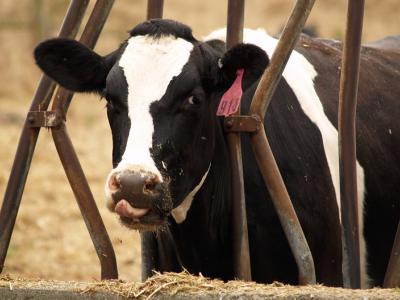Minnesota officials call for voluntary CWD-linked limit on moving live deer
The Minnesota Board of Animal Health voted unanimously against a mandatory 30-day state lockdown that would have banned shipping deer in and out of captive deer facilities, and instead opted for a voluntary lockdown for the state's 330 deer farmers.
According to the St. Paul Pioneer Press yesterday, the lockdown was proposed after a deer in Douglas County in west central Minnesota tested positive for chronic wasting disease (CWD), a fatal neurologic prion disease. Minnesota's state veterinarian, Beth Thompson, DVM, supported the temporary ban, because the 8-year old doe found in Douglas County was not born in that county.
Deer farmers and lobbyists representing them opposed a mandatory lockdown, however, claiming it would amount to a "scarlet letter" on Minnesota farms. The voluntary lockdown prevents moving deer until Jan 15, 2020.
CWD is a prion disease that affects cervids such as deer, elk, and moose. Though the disease has not yet jumped to humans, many fear it could mimic bovine spongiform encephalopathy (mad cow disease).
Dec 16 Pioneer Press story
Wisconsin reports first CWD detection in Sheboygan County
For the first time, CWD has been detected in Sheboygan County in the far eastern part of the state, the Wisconsin Department of Natural Resources (DNR) reported late last week.
The CWD-positive deer was an adult doe harvested in Plymouth township 20 miles from Fond du Lac County during this year's archery deer season. It was tested as a part of the DNR's disease surveillance program, the agency said in a news release. Because of the finding, the DNR has renewed a 3-year ban on baiting and feeding deer in Sheboygan County and a similar 2-year ban in Fond du Lac County, as required by state law.
Larry Bonde, chair of the Wisconsin Conservation Congress, said on Facebook that the detection is more than 40 miles from the nearest positive sample, which he calls "very troubling."
Jeff Pritzl, DNR Northeast District wildlife supervisor, said in the DNR release, "We are committed to working closely with local communities, including the citizen-based County Deer Advisory Councils, as we explore future management options for this disease in Sheboygan and the surrounding counties."
The agency encourages reporting of sick deer and sampling of vehicle-killed and hunter-harvested deer. It will continue to provide CWD sampling locations during the remainder of the 2019 deer hunting season and encourage hunters to use deer carcass waste disposal stations.
Dec 13 Wisconsin DNR news release
Dec 13 Larry Bonde Facebook post











